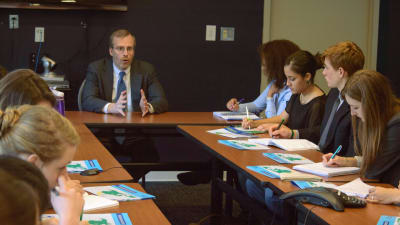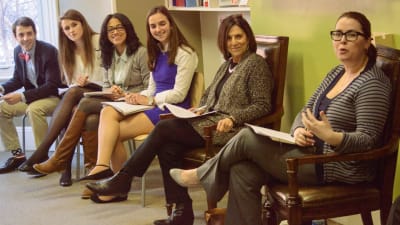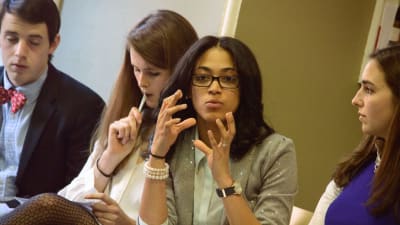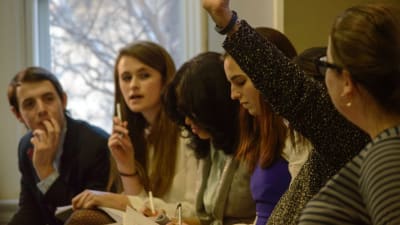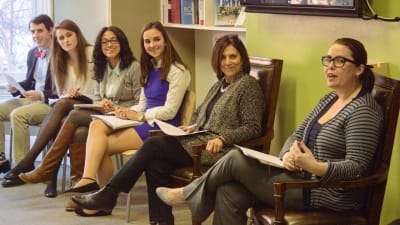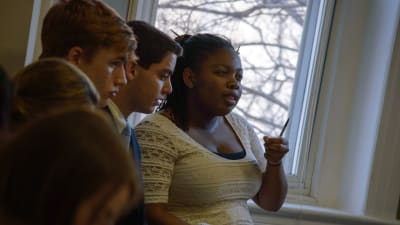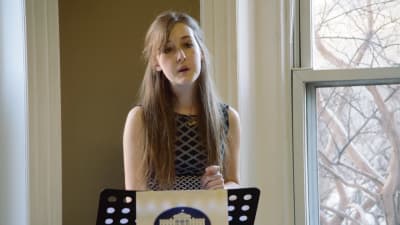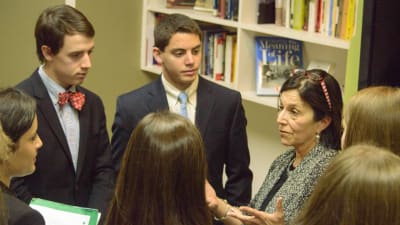LISSA MUSCATINE & AMBASSADOR TO UKRAINE HIGHLIGHT UKRAINE CRISIS WEEK
Quick: You’re President Obama, and Vladimir Putin has just put military troops on the ground in Ukraine. What do you say to the public?
That’s the real-life situation that our students confronted this week in Ethics and Leadership class. Along the way, they received advice from the first U.S. Ambassador to the Ukraine, the former Assistant Secretary of State for Democracy, Human Rights, and Labor, and two key speechwriters: longtime Hillary Clinton top speechwriter Lissa Muscatine and current Obama speechwriter Megan Rooney.
Our students’ task? To author, in small groups, a two-minute speech for President Obama advocating FOR or AGAINST U.S. military intervention in Ukraine.
Little did we know that Obama himself would have a very similar task on the same day our assignment was due, and that one of our guest speakers would have a hand in crafting his statement!
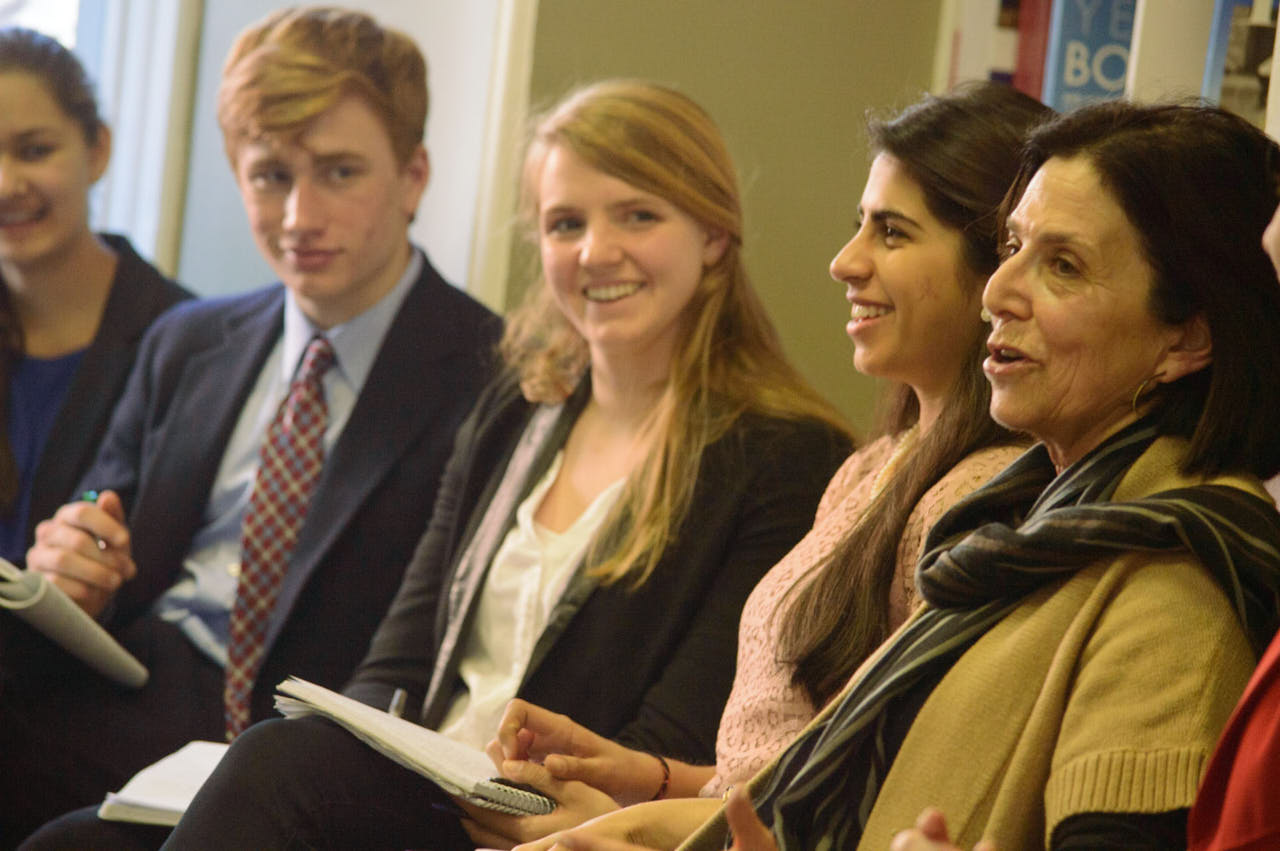
We started with a visit from Ms. Muscatine, last year’s “Golden Mug” award winner. (The award, given by graduates, goes to the guest speaker who has made the biggest impact on graduates’ lives.) She told war stories from her career (she is the author of Hillary Clinton’s most famous speech, the 1995 “Women’s Rights are Human Rights and Human Rights and Women’s Rights” address to the Beijing UN Conference on Women (click here to see the speech) and her 2008 Democratic National Convention speech (click here to see the speech), among many others. She also gave practical advice on how to write a great speech: for example, know your audience, know the type of speech you are writing, don’t use many adjectives, and violate the rules of grammar if it makes the rhetoric stronger.
She then handed out a prescient assignment, which you can view here. She asked the students to imagine an hypothetical that would become real over the course of the week: Putin has funneled aid to those who want to overthrow the Ukrainian government. You must write a speech for a joint session of Congress advocating for our against a military response.
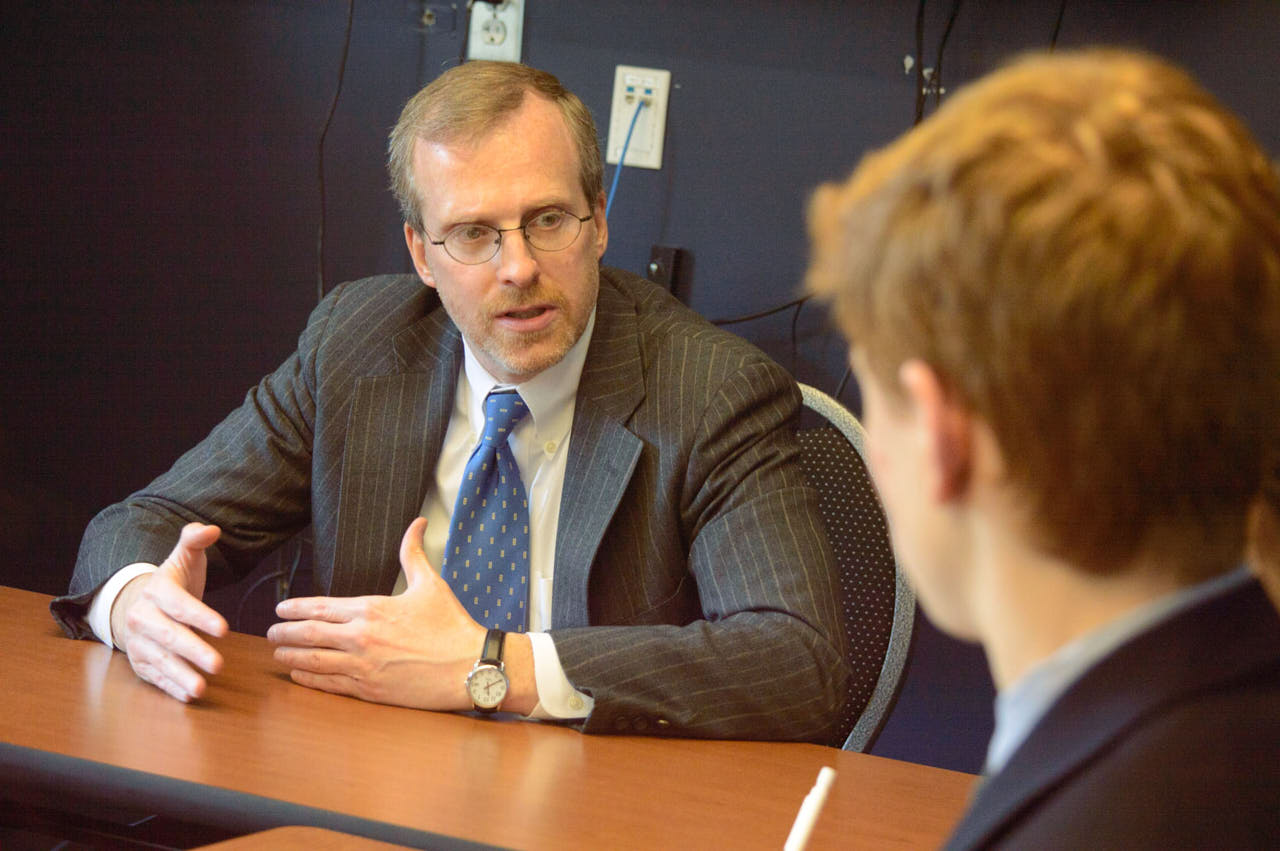
On Wednesday, we met with two key experts: First, David J. Kramer, President of Freedom House, a leading DC think tank that specializes in democracy, political freedom, and human rights. Kramer previously served as Assistant Secretary of State for Democracy, Human Rights, and Labor and was a Deputy Assistant Secretary of State for European and Eurasian Affairs, responsible for (among others) Russia and Ukraine. Freedom House is known for its annual publication Freedom in the World, which ranks countries according to how “free” they are. Click here for the Ukraine page.
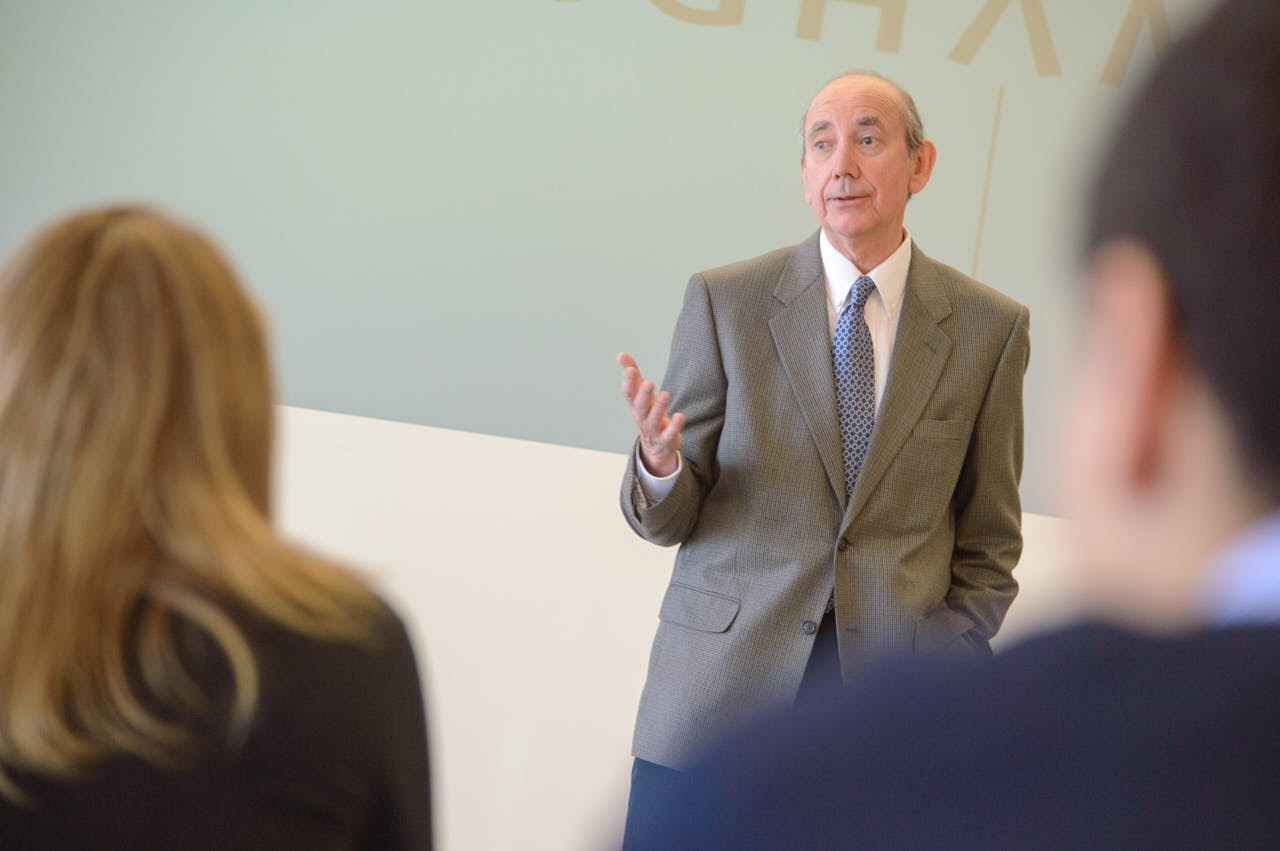
Second, we met with Roman Popadiuk, the first U.S. Ambassador to Ukraine. Popadiuk has an extensive career in government, including deputy assistant to the President and deputy secretary for Foreign Affairs under Presidents George H. W. Bush and Ronald Reagan; he also served as Executive Director of the George Bush Presidential Library Foundation for 13 years.
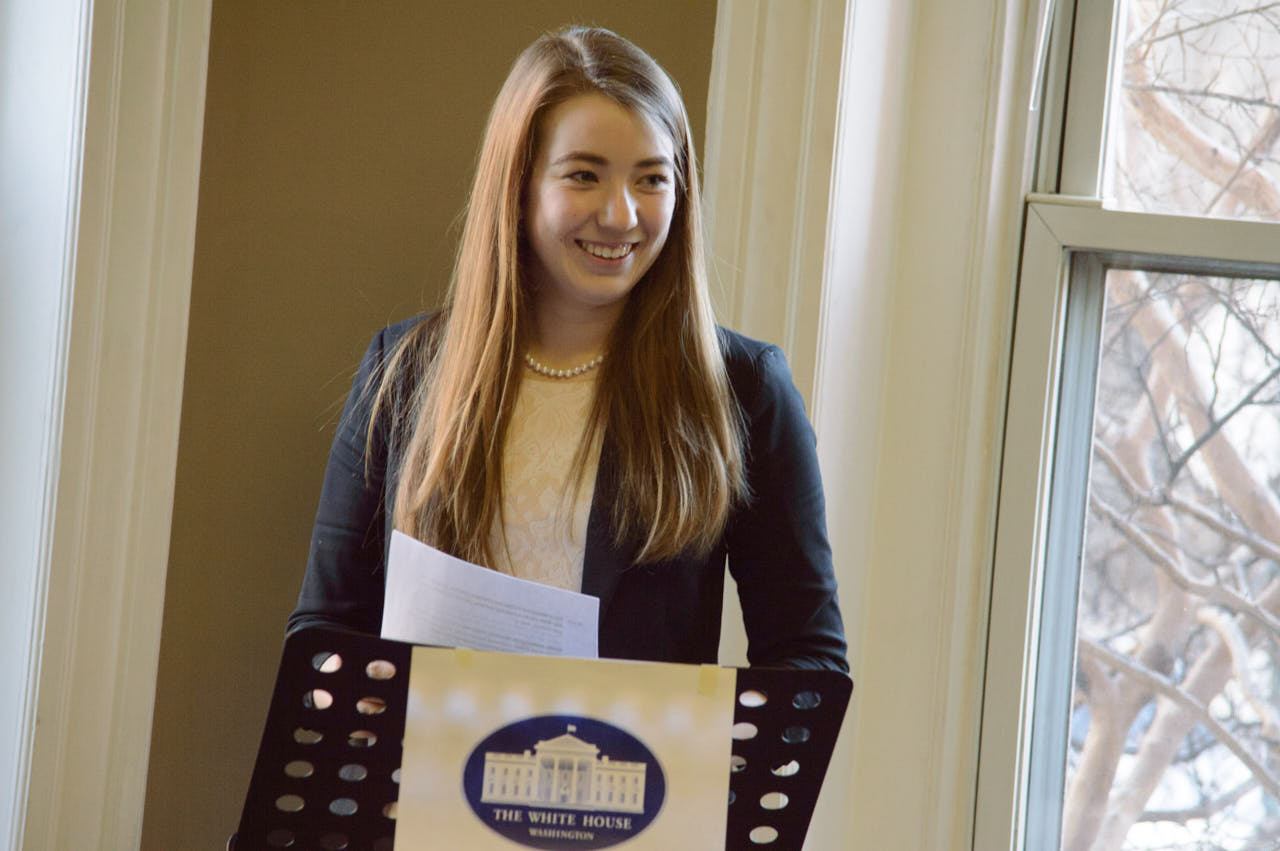
On Friday, Ms. Muscatine returned with her speechwriting protege, Megan Rooney, and together they listened as a representative from each group stood and read a speech. Their Master Class is now an SEGL tradition: after each speech was delivered, we placed the text on our 52-inch television screen and our guest experts gave a 15-20 minute interactive critique. Did they always agree with each other? No! Was that part of the fun? Absolutely.
Adding to the moment: as the students were delivering their speeches, Ms. Rooney frequently checked her BlackBerry. She was part of a team crafting President Obama’s first public statement on the Russian engagement in Ukraine (which we watched together after the last speech). Her off-the-record insights into the real-life behind-the-scenes speechwriting debate, as well as the analysis Muscatine and Rooney gave of Obama’s speech, were quite a privilege to hear.
On Friday evening the students worked to revise their speeches given the input they received. The final wording was, of course, up to them. It is exciting to think about how they will use this experience to advocate for their many ideas in the years to come.
What a week!





